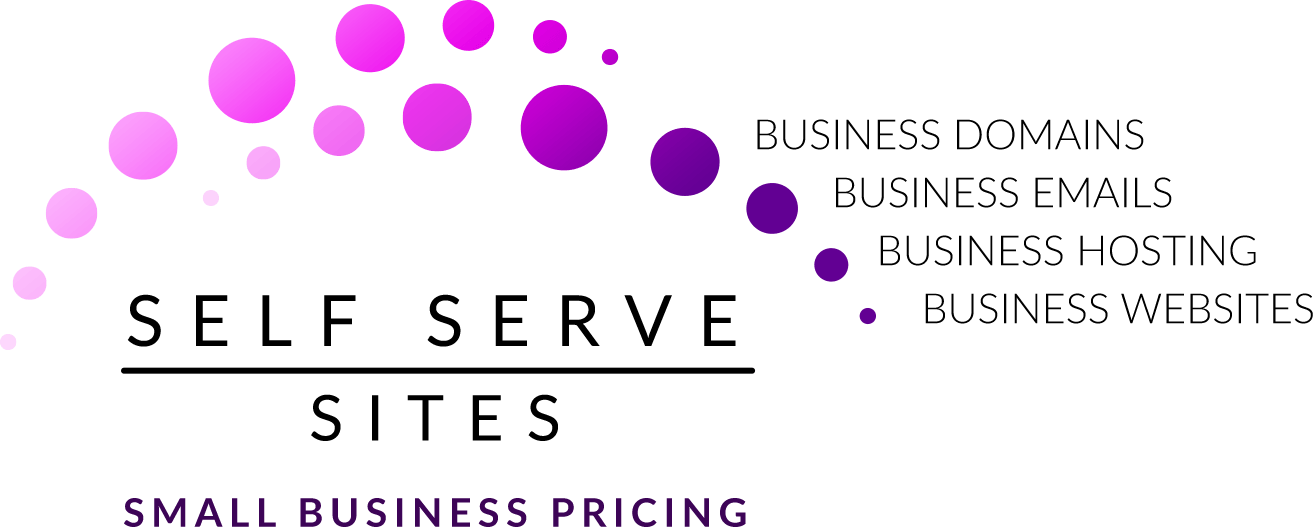What to Consider When Making Websites for Small Business
Making Websites for Small Business is more than just a checkbox on your to-do list—it’s the foundation of your online presence. Think of your Website as your digital storefront, open 24/7, where potential Customers can learn about your brand, explore your offerings, and connect with you. But simply having a Website isn’t enough; it needs to be well-designed, functional, and aligned with your business goals.
If you’re building or revamping your Small Business Website, here’s what you need to consider to make it effective, engaging, and successful.

Define Your Website’s Purpose and Goals
Before diving into design and content, take a step back and ask yourself:
- What do I want my Website to accomplish?
- Am I looking to sell products, generate leads, provide information, or all of the above?
- Who is my ideal audience, and what are they looking for?
Having a clear purpose will shape everything from your site structure to your content strategy. A Website designed for Ecommerce will look very different from one built for a local service provider. Define your goals early on so that every decision you make supports them.

Choose the Right Website Platform
The platform you choose to build your Website on can determine how easy (or difficult) it is to manage and scale your site in the future. There are several options to consider, each with its own advantages:
- Website Builders (Wix, Squarespace, Shopify): Ideal for beginners who want an easy drag-and-drop experience with minimal technical knowledge.
- WordPress: A powerful and flexible option, WordPress is great for content-heavy Websites and businesses that need scalability.
- Custom Development: If you need highly unique features or integrations, hiring a web developer to create a custom site may be your best bet.
Choose a platform that fits your needs and technical abilities. If you want control and flexibility, WordPress might be the way to go. If simplicity is key, another Website builder could be your best friend.

Pick a Strong, Memorable Domain Name
Your Domain Name is your online identity, so choose one that’s:
- Short and easy to spell: Avoid long or complicated words that people might mistype.
- Brand-friendly: Try to use your business name or something closely related.
- Professional: Stick with .com, .net, or .biz for credibility.
Your Domain should reflect your business and be easy to remember. A great Domain Name makes it easier for Customers to find you online.

Prioritise User Experience
First impressions matter. If visitors land on your site and find it cluttered, slow, or hard to navigate, they’ll leave. A user-friendly Website should be:
- Mobile-Friendly: Over half of web traffic comes from mobile devices. Your site needs to look great and function well on all screen sizes.
- Fast-Loading: Users expect pages to load within seconds. Optimise images, choose a good Hosting provider, and minimise unnecessary plugins.
- Easy to Navigate: A simple, clear menu and logical page structure help visitors find what they need quickly.
- Visually Appealing: Clean design, consistent branding, and high-quality images make your Website inviting and professional.

Optimise for Search Engines
Your Website won’t do much good if people can’t find it. Search engine optimisation (SEO) helps your site rank higher on Google and attract organic traffic. Here’s how to improve your SEO:
- Use relevant keywords in your content that your target audience is searching for.
- Write clear and compelling meta titles and descriptions for each page.
- Optimise your site speed and mobile experience (Google prioritises fast, mobile-friendly Websites).
- Regularly update your site with valuable content, like blog posts, FAQs, and service pages.
A well-optimised Website can bring in traffic without the need for constant advertising.

Include Essential Pages
Every business Website should have a few key pages to ensure visitors get all the information they need:
- Home Page: The first thing visitors see—introduce your brand and highlight your main offerings.
- About Page: Share your story, values, and what sets you apart from competitors.
- Products/Services Page: Clearly outline what you offer with detailed descriptions and pricing if applicable.
- Contact Page: Make it easy for Customers to reach you with a contact form, phone number, and email.
- Testimonials/Reviews Page: Social proof is powerful—include Customer reviews or case studies.
Having these pages ensures your visitors can quickly find what they need, making them more likely to take action.

Ensure Strong Security Measures
Security isn’t just for big businesses. Small Business Websites are often targeted by hackers, so you need to protect your site and Customer data. Here’s how:
- SSL Certificate: Enables HTTPS and encrypts data, essential for security and SEO.
- Regular Backups: Keep backups of your Website in case something goes wrong.
- Secure Hosting: Choose a Hosting provider that offers strong security features like firewalls and malware protection.
- Strong Passwords & Updates: Regularly update your Website software and use strong passwords.
A secure Website protects your business reputation and your Customers’ trust.

Integrate Marketing & Social Media Tools
Your Website should work alongside your marketing efforts, not in isolation. Enhance its effectiveness by integrating:
- Email Marketing Tools: Add email signup forms for newsletters or promotions.
- Social Media Links: Make it easy for visitors to follow and engage with you on social media.
- Live Chat & Contact Forms: Provide instant ways for potential Customers to reach you.
- Google Analytics: Track visitor behavior and optimise your site accordingly.
A Website that’s connected to your marketing strategy will help you generate leads and increase sales.

Plan for Ongoing Maintenance
A Website isn’t something you build and forget. Regular updates and maintenance keep it fresh and functional. Be sure to:
- Update Content: Keep product listings, pricing, and business info current.
- Fix Broken Links: Broken links hurt your credibility and SEO.
- Monitor Performance: Use analytics tools to see what’s working and what needs improvement.
- Test Usability:
Occasionally browse your site like a Customer to ensure it’s user-friendly.

Hire a Professional Who Specialises Making Websites for Small Business
If you’re short on time or technical skills, investing in a professional web designer or developer can be worthwhile.
A well-built Website can save you headaches, improve conversions, and create a strong first impression.

Making a Website That Works for Small Business
A Small Business Website is an essential tool, but it needs to be designed with intention. By focusing on usability, SEO, security, and marketing integration, you can create a Website that not only looks good but also drives real business results.
Building a Website is an investment in your business’s success. Take the time to plan, choose the right tools, and create a site that helps your Small Business grow.
Ready to build a site that works for you? Reach out today!










